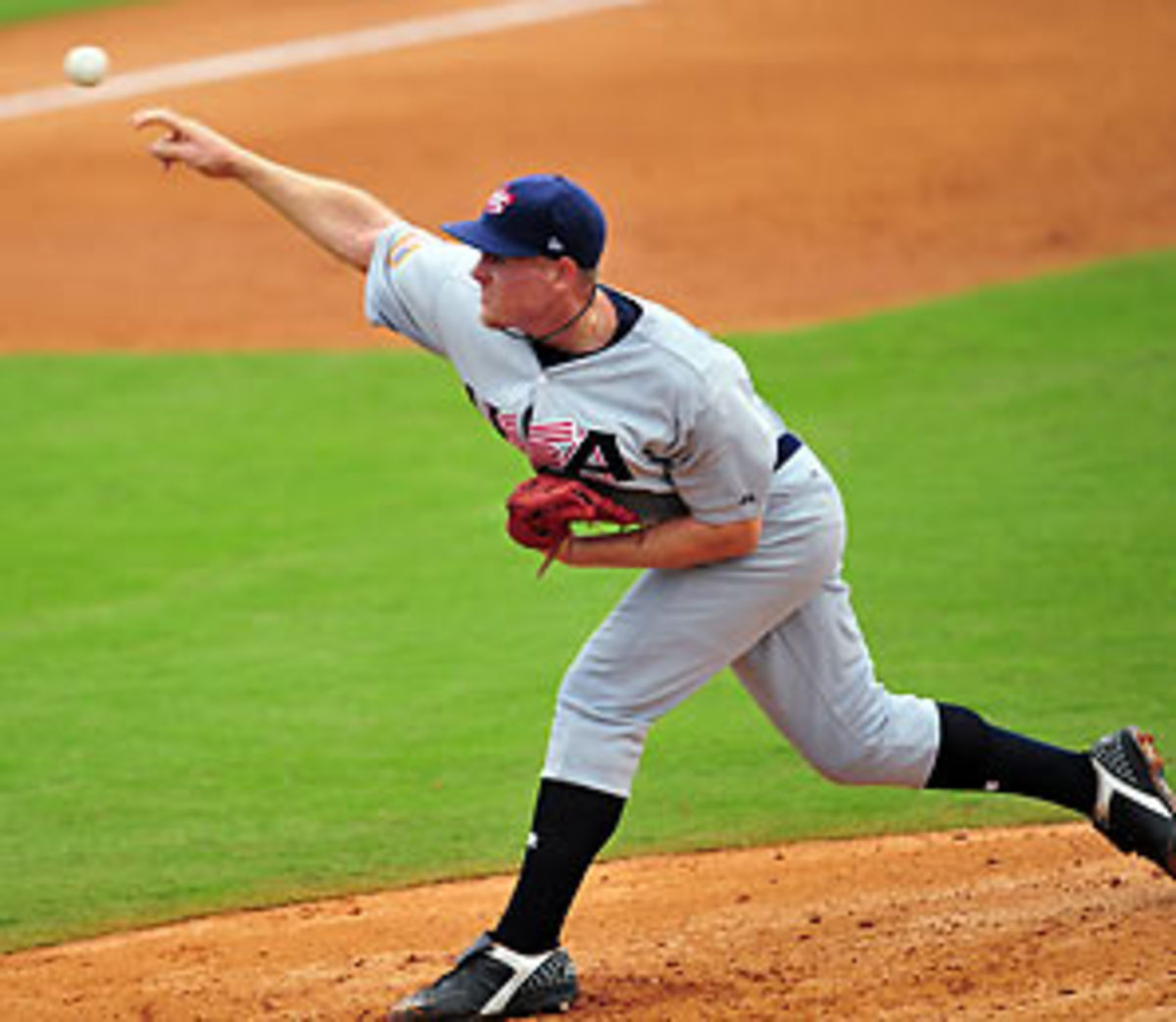
U.S. loss is the end of an error
BEIJING -- The gaggle of major-league scouts was seated just to the left of home plate in a section reserved for Olympic family, but no one was getting too comfortable on the hard plastic chairs.
When the Olympic flame is extinguished Sunday, so is Olympic baseball, the end of an uneasy marriage that never suited either party since baseball formally joined the five-ringed circus in 1992.
If the IOC needed any more after-the-fact justification for removing baseball from the Olympics, Cuba and the U.S. provided it on a sultry Friday night. In a game that would have been crackling with energy and emotion and meaning if baseball rightfully belonged here, they played a desultory, often sloppy, Olympic semifinal in which almost any ball put in play -- except for the four the Cubans bombed over the wall -- was an adventure.
The dog days of August had produced a dog, a 10-2 Cuban victory. This could have been any late-summer minor-league game played in a bare-bones stadium, minus the wacky promotions and kids running bases after the final out.
For the IOC, this was the primary sticking point about the red-haired stepchild of the Games, one sport that didn't need the Olympics' imprimatur to be perceived as important. The IOC wanted big names from the lords of baseball, but it got either young or second-tier players -- except, of course, for the Cubans.
Unlike the National Hockey League and the NHL Players Association, which has bought into the lend-lease program and has been shutting down the season since 1998 to accommodate the Olympics, Major League Baseball always was too immersed in its own season to bother. Seattle vs. Oakland or Cuba vs. the U.S.? For major-league owners, this was an absurdly easy choice. If you want international baseball, try our World Baseball Classic II, a spring training extravaganza coming your way in 2009.
So instead of the focus being on medals and nationalism and all the things that should make a semifinal matter in any Olympic sport matter, the centerpiece of the affair was a 6-foot-4 right-handed pitcher from San Diego State who already has some blond big-league stubble under his chin. Although baseball is a timeless game, it didn't deter the scouts from bringing their stopwatches, presumably to time Stephen Strasburg's move to first. Strasburg, the only member of the American team not playing professionally, likely will be selected first in the '09 draft.
"What's not to like?" said Rob Ducey, the former major-league outfielder and '04 Olympian who coached for Canada here and also scouts for the Toronto Blue Jays. "He's [6-4], he throws 95 [mph] and he has the hammer from hell" -- actually, a slider, not a curve, that buckles knees.
For the scouts, an Olympic semifinal against a veteran Cuban team was merely one more test, albeit one with harder questions than the one Strasburg had faced had April against the University of Utah (23 strikeouts) or that seven-inning, one-hit performance against the Netherlands in the Olympic round-robin. The Dutch batted .167 as a team. The Cubans entered the game hitting .300, which is like moving from long division to Boolean algebra.
But the 20-year-old Strasburg wasn't fazed, at least the first time through the lineup, backing off the Cubans with his go-to slider and hitting 97 mph on the stadium scoreboard. He labored in the second inning, however, and although he sneaked through unscathed, the toll was mounting. In the third, Cuba's Héctor Olivera gapped a run-scoring triple and scored himself when the throw bounded past third base in the third. The following inning, Alfredo Despaigne smoked a two-out homer to dead center off a slider, the only terrible pitch Strasburg threw. He left after four innings, having allowed three runs on six hits.
"Nobody's perfect, but I thought I did a good enough job," Strasburg said. "At least I kept the team in the ball game ... Hopefully, they'll get baseball back in the Olympics and I definitely want another shot at this team. They're a very, very good team, I definitely think very highly of them, but I think I can beat them."
He will never have the chance again in the Olympics, but don't rule out a World Baseball Classic in, say, 2013, when baseball will be a distant speck in the IOC's rearview mirror. Strasburg should be a wealthy man by then; he has already taken on Scott Boras as an advisor.
And if you must mention Boras in a story about the Olympics, well, there's one final reason baseball doesn't belong here.





